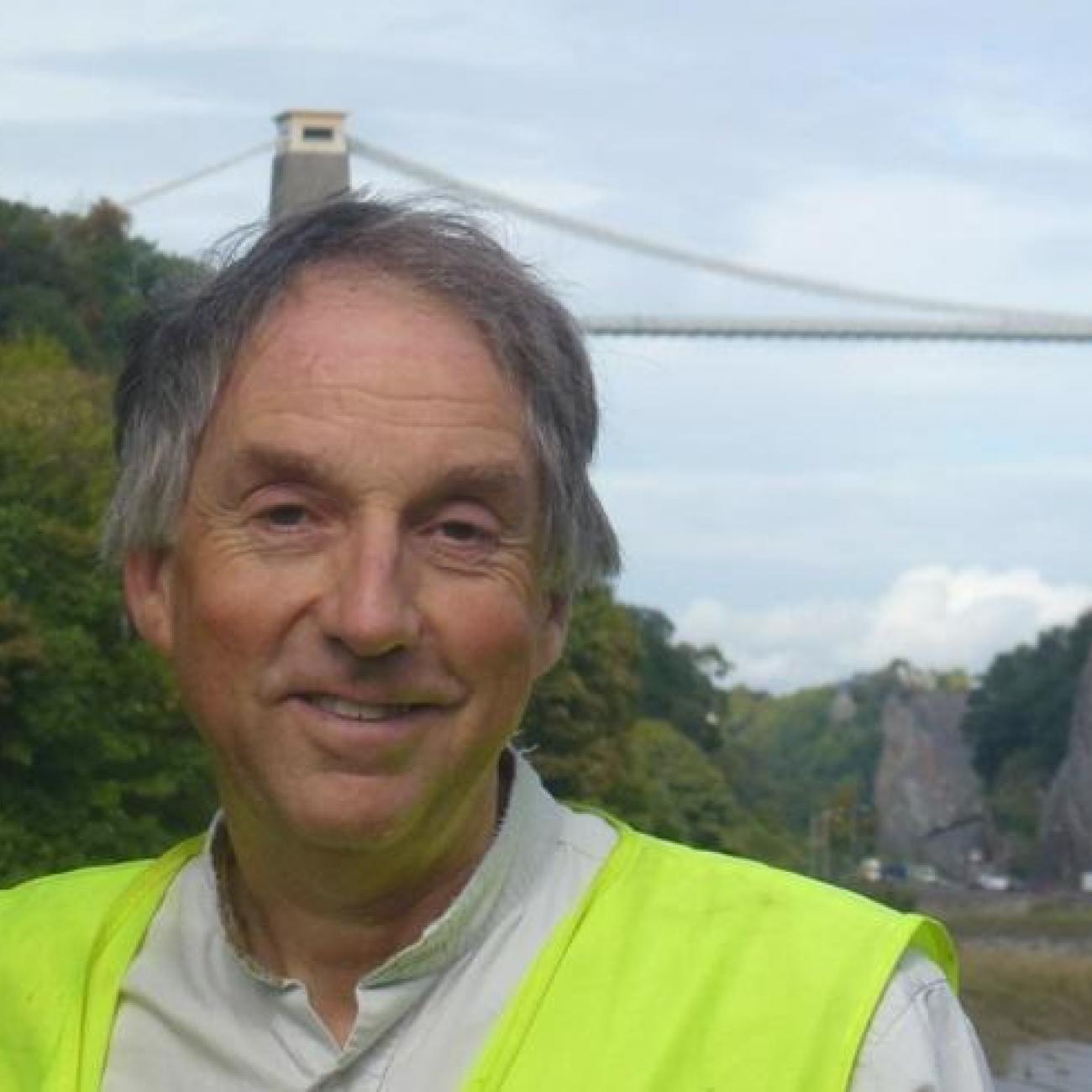About
William Powrie is Professor of Geotechnical Engineering at the University of Southampton. He is the author of the internationally-acclaimed textbook Soil Mechanics: Concepts and Applications, now in its third edition. A particular focus of his work is the application of soil mechanics principles to "difficult" soils and soil-like materials, including landfilled waste, strongly interlocked sands, and railway ballast. He works closely with industry. He has been involved in a variety of major civil engineering projects including the Conwy and Medway immersed tube tunnels, Jubilee Line stations at Canary Wharf and Canada Water and HS1; and he chairs HS2's Independent Geotechnical Expert Panel. He is well known for his founding contributions to Environmental and Transportation Geotechnics, in recognition of which he was elected Fellow of the Royal Academy of Engineering in 2009. He has been Convenor of the 15-university UK Collaboratorium for Research on Infrastructure and Cities (UKCRIC) since 2018, and leads the UK Rail Research and Innovation Network (UKRRIN) Infrastructure Centre of Excellence.
Research
Research groups
Research interests
- Railway track and trackbed behaviour and performance.
- Geotechnical transportation infrastructure (earthworks, retaining walls, tunnels).
- Groundwater and groundwater control.
- Landfill engineering, behaviour and management.
- Fundamental soil mechanics.
Current research
William's research has a practical focus and is supported by EPSRC and industry, in particular rail infrastructure owners Network Rail and HS2. Programmes or themes include
o understanding dual-phase (gas and liquid) flow in landfills and its impact on landfill evolution (degradation and settlement)
o monitoring and understanding railway track performance; including interactions with earthworks, hard structures such as underbridges, traffic loading, seasonal cycles and weather / climate effects
o effects of heavy axle weight traffic on railway track and infrastructure
o identification and quantification of threshold effects in the cyclic loading of geotechnical materials
o effect of track form and bending stiffness on dynamic and long-term performance of railways, including the benefits when traversing zones of weakness or differential stiffness
o ground movements associated with construction activities including shallow bored tunnelling and interactions with existing infrastructure
o fundamental soil mechanics
William leads a new Network on infrastructure for Port cities And Coastal Towns network – iPACT, which aims to identify people-focused, infrastructure-based solutions to the complex problem of improving social well-being and prosperity in coastal communities through resilient and sustainable regeneration. A key emphasis will be on taking advantage of the coastal location. Research questions will be based around themes of
o Connectivity with the coast
o Inclusive infrastructure
o Maintaining and enhancing resilience
o Coastal region transport
o Nature-inspired, human scale engineering
Research projects
Active projects
Completed projects
Publications
Pagination
- 1
- 2
- 3
- 4
- 5
- …
-
Next page
Next
Teaching
Part 1 Statics (structures and stress analysis): weekly tutorial group: FEEG 1002
Part 2 Soil mechanics (groundwater, soil behaviour and laboratory testing): CENV2006
Part 3 Individual Project supervision
Part 4 Advanced Geotechnical Engineering (analysis of shallow foundations and earth pressures) (CENV6122)
Part 4 Group Design Project supervision
MSc research project supervision
External roles and responsibilities
Biography
William Powrie is Professor of Geotechnical Engineering at the University of Southampton, and was Dean of the Faculty of Engineering and the Environment from 2010-2018. His main technical areas of expertise are in geotechnical aspects of transport infrastructure, and sustainable waste and resource management. He was elected Fellow of the Royal Academy of Engineering in recognition of his work in these areas in 2009.
William’s work on geotechnical aspects of transport infrastructure encompasses groundwater control, in-ground construction to reduce environmental impacts in urban and other sensitive areas, understanding and mitigating vegetation and climate change effects, and fundamental soil behaviour. Major projects on which he has worked include the A55 Conwy Crossing, the Jubilee Line extension stations at Canary Wharf and Canada Water, and HS1. He is currently working with HS2 on geotechnical and earthworks aspects. He is co-author of Construction Industry Research and Information (CIRIA) reports C750 Groundwater control – design and practice, 2nd edition (2016) and C760 Guidance on embedded retaining wall design (2017). Both these incorporate results of his research in these areas. He is a former Associate Editor of the Canadian Geotechnical Journal, a former Honorary Editor of the Institution of Civil Engineers journal Geotechnical Engineering, and has been Geotechnical Consultant to groundwater specialists WJ Group since 1987.
William’s work in waste and resource management focuses on landfill engineering, and on the development of a sound scientific basis for policy and practice. He led a major EPSRC-funded programme of fundamental research, Science and Strategies for the Management of Residual Wastes, with the aim of enabling and encouraging landfill operation so as to accelerate biodegradation and stabilization of the waste. He is a co-author of the Institute of Wastes Management report on the Role and operation of the flushing bioreactor. He worked on the design and engineering risk assessment of the low level radioactive waste repositories at Drigg; and was founding Honorary Editor of the ICE journal Waste and Resource Management. From 2004-2010, he was a member then chair of the Technologies Advisory Committee for Defra’s £30M programme of research and demonstrator projects for new technologies for the treatment of biodegradable waste.
William is committed to the protection of the environment through the avoidance of pollution and loss of biodiversity. He re-uses or recycles goods and materials wherever possible, and his principal mode of personal transport is by bicycle. Leisure activities include cycle touring, railway heritage and being organist at St Edward's church, Netley Abbey.
Prizes
- Institution of Mechanical Engineers John F Alcock Memorial Prize (2008)
- Institution of Mechanical Engineers Thomas Hawksley Medal (2008)
- British Geotechnical Association Medal (2017)
- British Geotechnical Association Medal (2021)
- Zeng Gui-Xi Lecture and Award (2016)
- Institution of Civil Engineers Unwin Lecture (2018)
- 3rd ISSMGE Ralph Roscoe Proctor Lecture in Transportation Geotechnics (2021)
